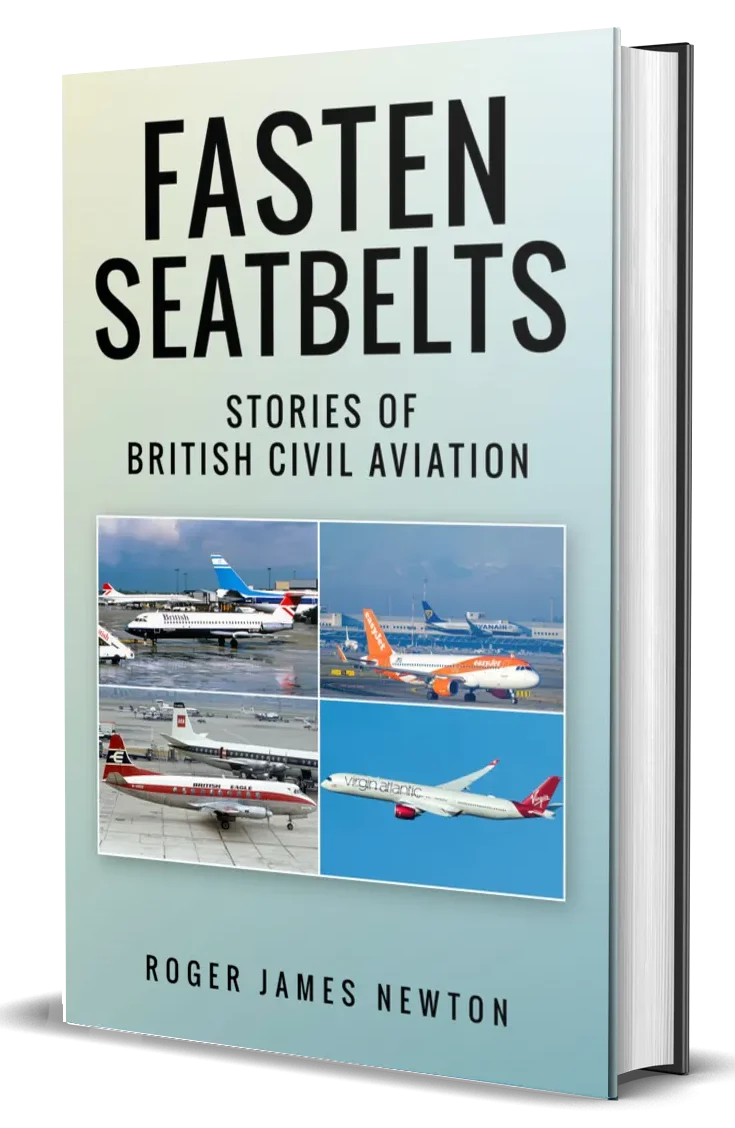
If you want to learn about British civil aviation history, Roger James Newton’s debut book, Fasten Seatbelts: Stories of British Civil Aviation, combines thorough research with a personal passion that has grown since his teenage years as a plane spotter at Manchester Airport. It is not a dry history of planes and dates. Instead, it is a thoughtful and steady exploration of the people, policies, and engineering that have shaped British aviation from 1919 to today.
Newton’s background adds strength to his storytelling. After studying law, he worked in industry, including a period with Rolls-Royce in Derby. This gave him a closer view of aviation than most writers could achieve. His knowledge of how companies, governments, and engineers worked together or sometimes against each other runs through the pages of this book. That experience adds weight to the story while keeping it grounded and easy to follow.
The book takes the reader through the early years of British civil aviation when planes were basic and flights were long and uncomfortable, but they captured the imagination of the public. Newton explains how Imperial Airways opened routes across Europe and the Empire, and how those flights created the framework for global travel. He also describes the role of state-owned airlines like BOAC and BEA, and how they set standards for reliability and service.
Later chapters explore the jet age and the remarkable achievements of British engineering. This includes, the de Havilland Comet, despite its tragic flaws, was the first commercial jet airliner. The Vickers Viscount brought turboprops into everyday use, and Concorde became a symbol of speed and prestige. Newton does not exaggerate these achievements. He presents them with honesty, describing both the successes and the failures that followed.
The book also highlights the contributions of independent airlines and individuals who shaped civil aviation. The Berlin Airlift, for example, gave many smaller carriers the chance to prove themselves and win lasting recognition. Entrepreneurs like Freddie Laker later pushed the industry toward affordability with his Skytrain service. These stories remind us that aviation is not only about machines but about people with vision and determination.
What makes Newton’s book stand out is his ability to bring together technical detail, business decisions, and human stories without making the reader feel lost. He does not assume specialist knowledge, yet he avoids oversimplifying the subject. His writing is clear and measured, allowing readers to absorb the history step by step. It is a book that can be read by enthusiasts and newcomers alike.
For anyone interested in British history, industrial progress, or the way ordinary lives were changed by aviation, Fasten Seatbelts is a rewarding read. It captures both the excitement of flight and the reality of the challenges behind it. Newton’s passion for aviation is obvious, but he allows the facts and the stories to speak for themselves. This balance is what makes his first book such a strong debut.
Fasten seatbelts isn’t just a book. It is a tribute. A tribute to the aircraft, the lives of the people behind them, and the legacy Britain left in the skies. With elegant prose, rigorous research, and personal insight, Roger James Newton has created a compelling read that glides between historical analysis and heartfelt homage.
At a time when aviation is celebrated and scrutinised, this book reminds us where we came from, and how high human ambition can truly fly.
Head to Amazon to grab your copy. https://www.amazon.com/dp/B0FR3L99F5.